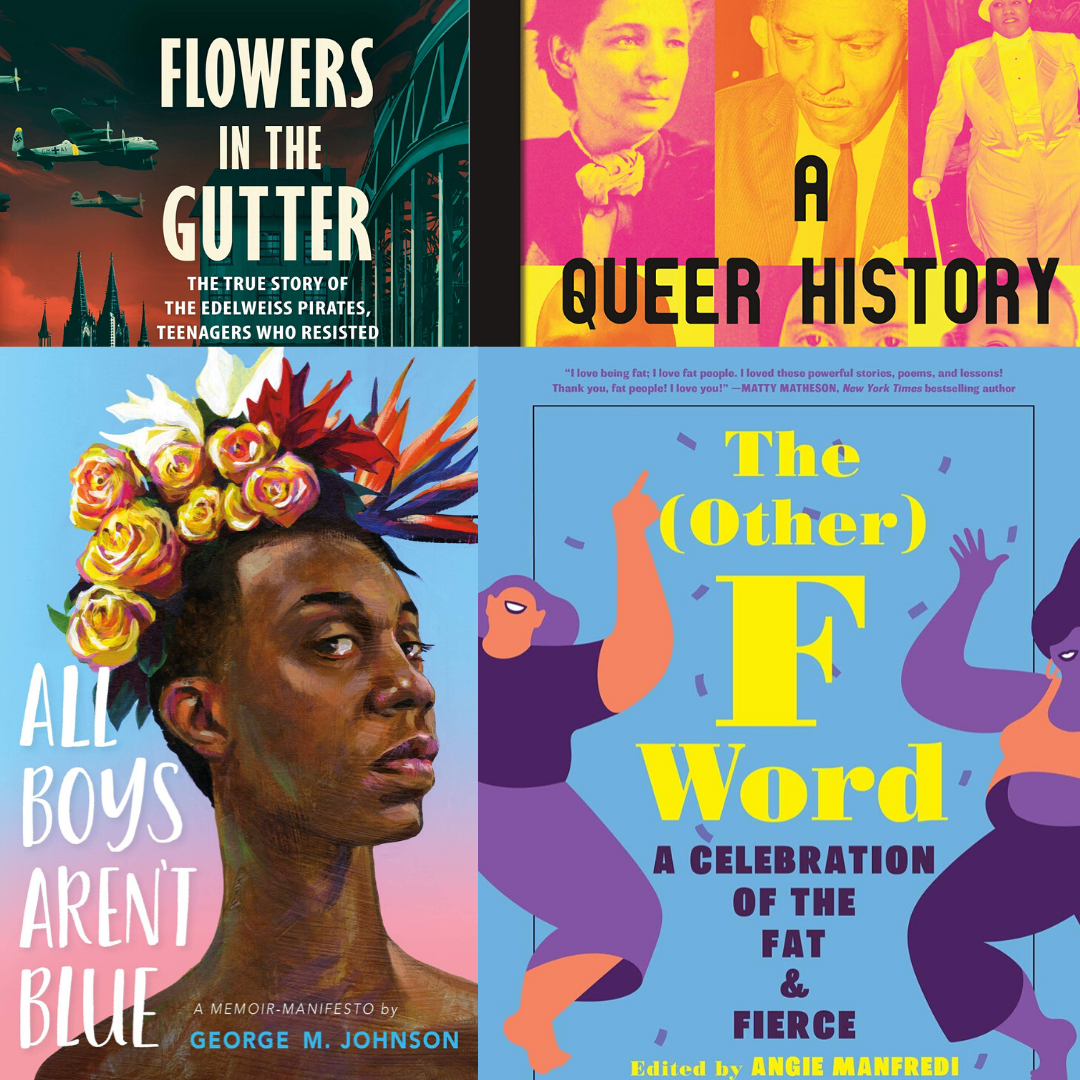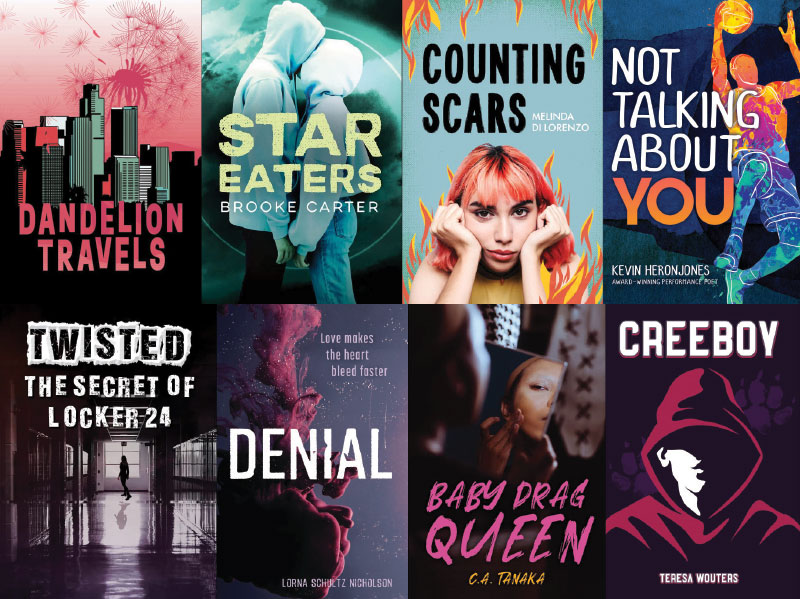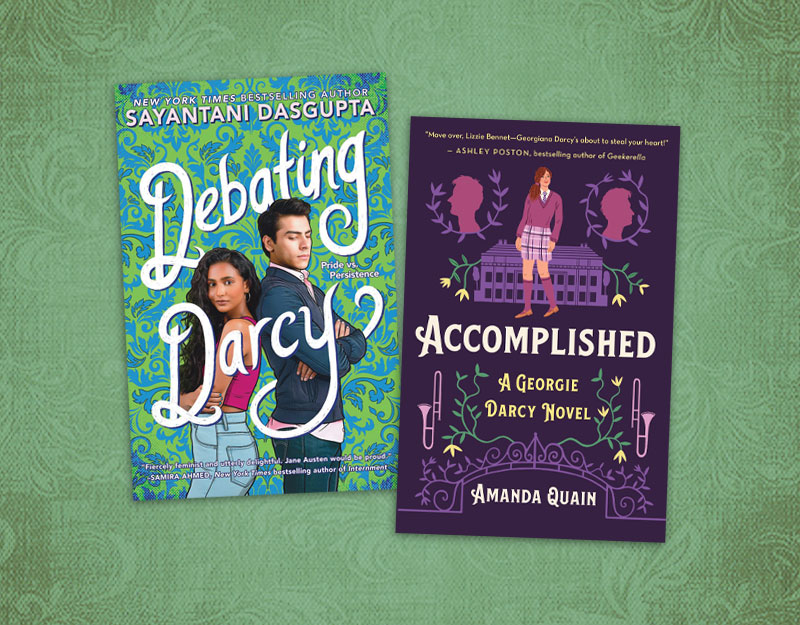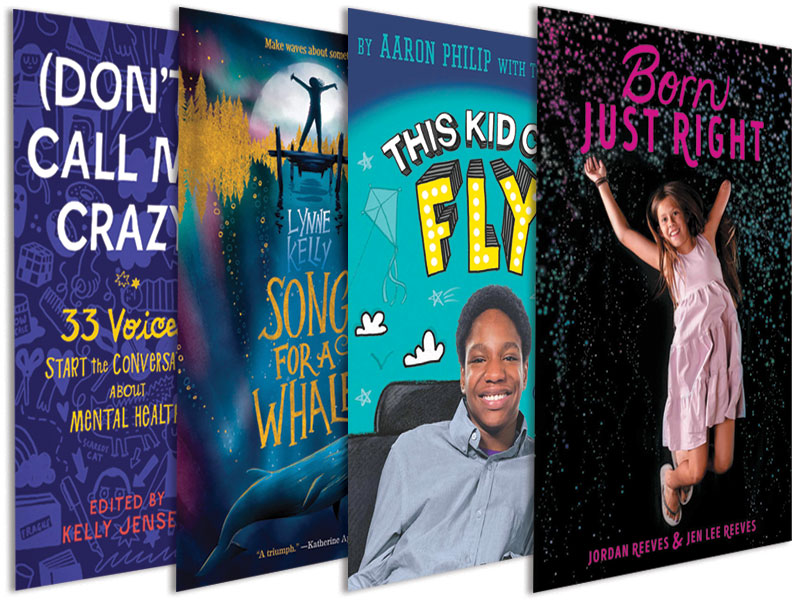Eating Disorders Don’t Discriminate: A Review of John Schu’s Louder Than Hunger, by guest blogger Linda Williams Jackson
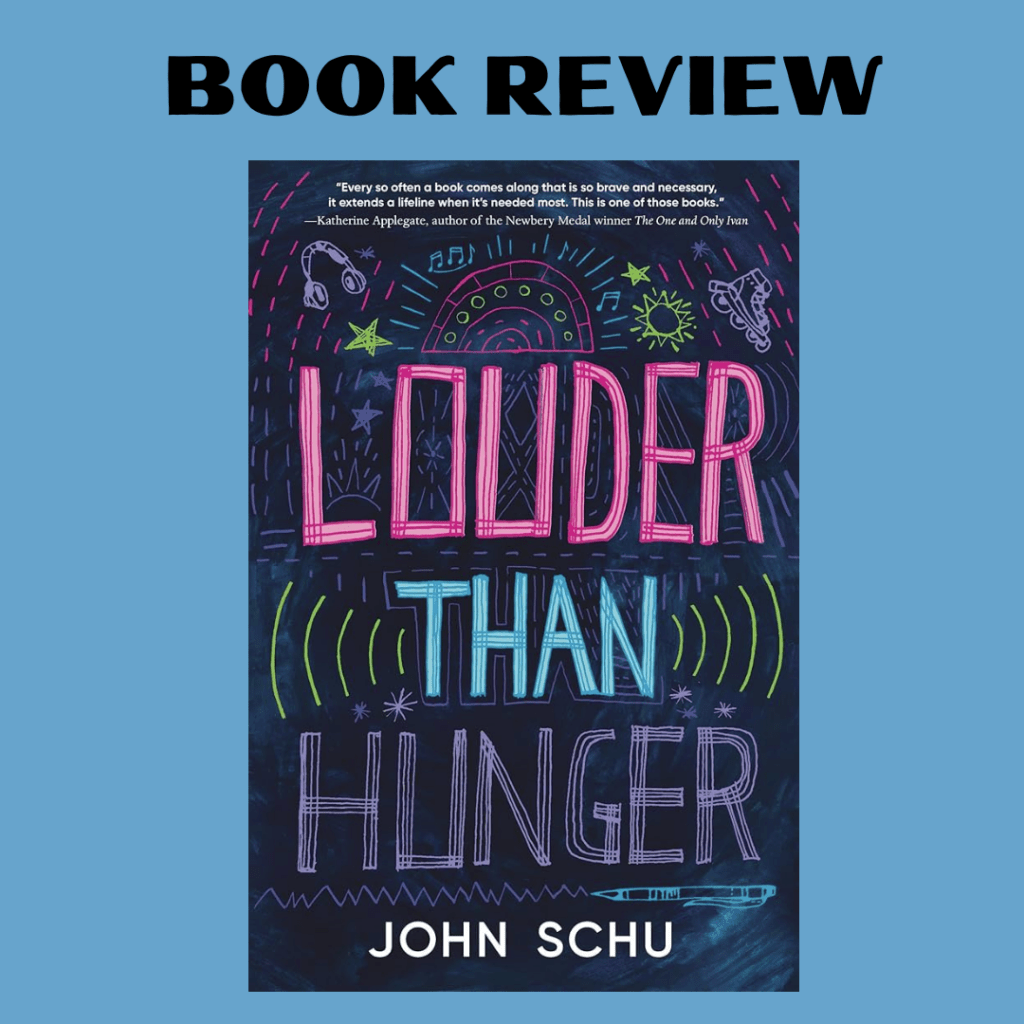
When my older daughter was in eighth grade, she came home one day and told me about a boy in her class who had been hospitalized due to an eating disorder. “He became anorexic after kids teased him about his weight,” she said.
I was stunned. I had never heard of a boy suffering from an eating disorder. I’m not sure why I assumed this was an emotional illness that only affected girls. Experience, however, had taught me that this illness was not limited to only white girls. I knew this because I—a Black woman born and raised in the poorest part of Mississippi—had suffered from disordered eating for most of my adolescent years, and part of my adulthood.
ADVERTISEMENT
ADVERTISEMENT
From the moment John Schu announced his book deal for Louder Than Hunger, I was anxious to read it. Still thinking about the young boy in my daughter’s class, I wanted to see inside the mind of a boy who suffered from disordered eating. Yet, even with all the glowing reviews from so many award-winning and bestselling children’s book authors, I was hesitant to request a copy of the book from Candlewick. Mr. Schu (as he is known in the kidlit community) had written picture books that I love. What if his verse novel didn’t hold up to my expectations? What if all those authors were heaping praise on this book because of all of Mr. Schu’s contributions to the kidlit community?
My fears were for nought. From the opening pages, I identified with Jake, the main character. I, too, often practiced writing my name in cursive over and over again. But unlike Jake (who is really John looking back), I had no idea I was doing this to try to figure out who I was. Of course, by page seven, Mr. Schu gets straight to the point of this story with a poem titled “Nobody?” The words, “My stomach G-R-O-W-L-S. The voice tells it to S T O P,” quickly pulled me into Jake’s story. They took me straight back to my eighth-grade self. From this point on, I knew I was about to confront some decades-old demons.
Reading Jake’s story, I recalled my own complicated relationship with food—not because I was overweight—but because I was insecure and unsure of who I was. I, like Jake, felt like “Nobody.” As a result, I was determined to shrink myself to just that—no body. Reading Jake’s story reminded me of the threatening notes that I would often write myself—notes that said if I ate a certain food or if I ate after a certain time of day, I hoped horrible things would happen to certain members of my household, specifically my mom and my youngest sister, two people I loved more than anyone else in the world. Reading Jake’s story made me wonder how many other children might be going to such extremes in their battles with disordered eating.
I never entered a treatment center like Jake. For one, I was living in the Mississippi Delta in the late 70s and early 80s. If my condition had gotten as severe as Jake’s, I probably would have simply died. But again, I could identify with Jake’s time in treatment through the experiences of both of my daughters, who spent time in residential treatment centers for depression and anxiety. Every detail in Louder Than Hunger rang true for this mom who, like Jake’s mom, became frustrated when she had to “walk on eggshells” around her fragile children. One of my daughters even had a therapist named Dr. Parker, making the story feel that much more familiar to me. At times, while reading Louder Than Hunger, I felt as if Mr. Schu had written this book just for me.
Of course, John Schu didn’t write this book just for me. Nor did he write it just for young John Schu. Nor did he write it just for children who might have complicated relationships with food. He wrote it for everyone, because everyone needs to read it, including people who have healthy relationships with food, or healthy relationships with other people. Louder Than Hunger is a book that everyone needs to read so that we can all understand what it’s like to feel so small that you want to disappear completely.
Louder Than Hunger is an emotionally wrenching story, especially if you’ve ever had an eating disorder or have been (or know someone who has been) in treatment for any type of emotional illness. Though I was close to tears during a good part of this book, I was smiling, nodding, and thinking, “Way to go, Jake!” towards the end. And so will young readers.
Meet the author

Linda Williams Jackson is the author of Midnight Without a Moon, which was an American Library Association Notable Children’s Book, a Jane Addams Honor Book for Peace and Social Justice, and a Washington Post Summer Book Club Selection. Her second book, A Sky Full of Stars, received a Malka Penn Honor for an outstanding children’s book addressing human rights issues and was a Bank Street College Best Book of the Year. Her third book, The Lucky Ones, also a Bank Street College Best Book of the Year—among other award nominations—was inspired by Robert Kennedy’s 1967 Poverty Tour of the Mississippi Delta and is loosely based on her own family’s experiences in the Delta. Born and raised in Rosedale, Mississippi, Linda Williams Jackson lives in Southaven, Mississippi, with her family.
Filed under: Uncategorized
About Amanda MacGregor
Amanda MacGregor works in an elementary library, loves dogs, and can be found on Twitter @CiteSomething.
ADVERTISEMENT
ADVERTISEMENT
SLJ Blog Network
Name That LEGO Book Cover! (#53)
Cover Reveal and Q&A: The One and Only Googoosh with Azadeh Westergaard
Exclusive: Vol. 2 of The Weirn Books Is Coming in October | News
Fighting Public School Book Bans with the Civil Rights Act
ADVERTISEMENT



